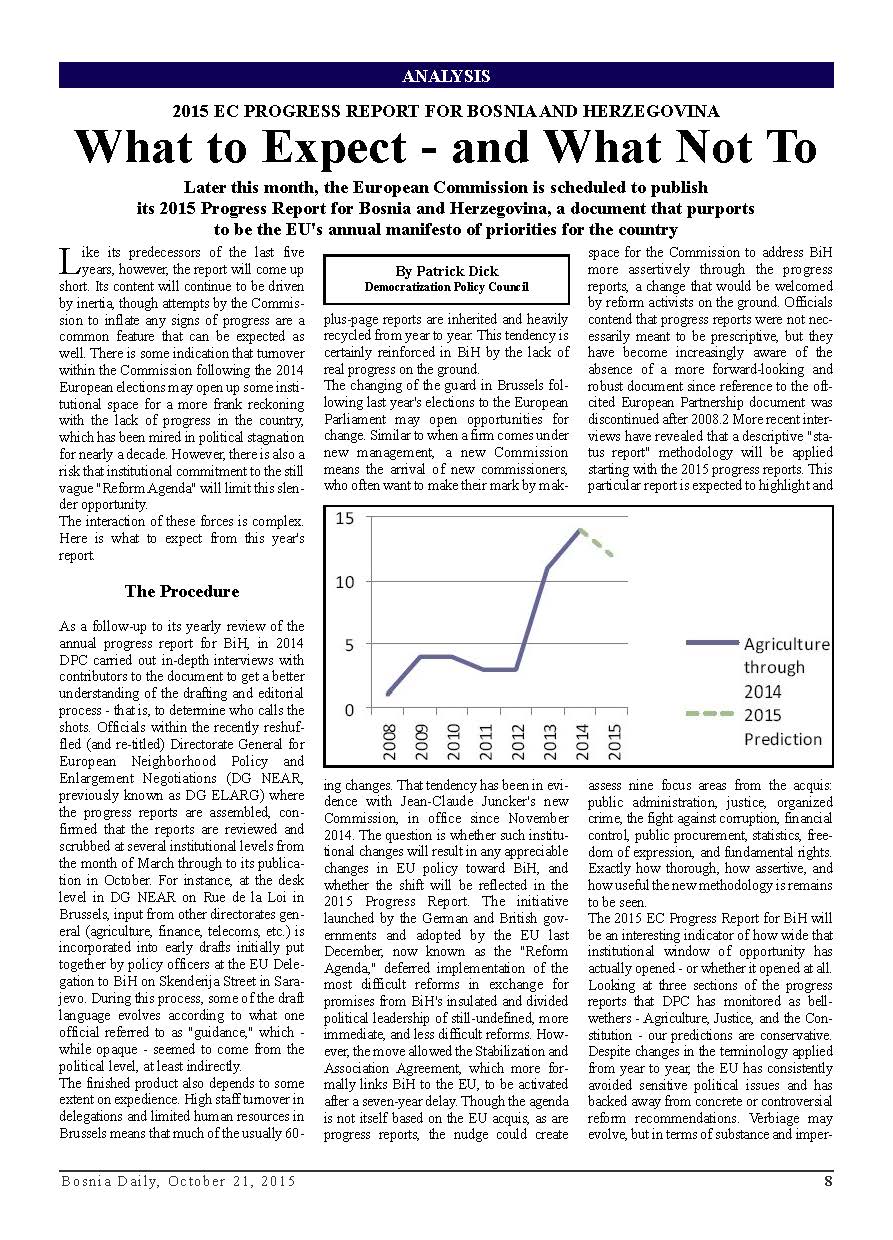
DPC BOSNIA DAILY: What to Expect - and What Not To
Bosnia Daily: October 21, 2015 – What to Expect - and What Not To
More...We kindly inform you that, as long as the subject affiliation of our 300.000+ articles is in progress, you might get unsufficient or no results on your third level or second level search. In this case, please broaden your search criteria.

Bosnia Daily: October 21, 2015 – What to Expect - and What Not To
More...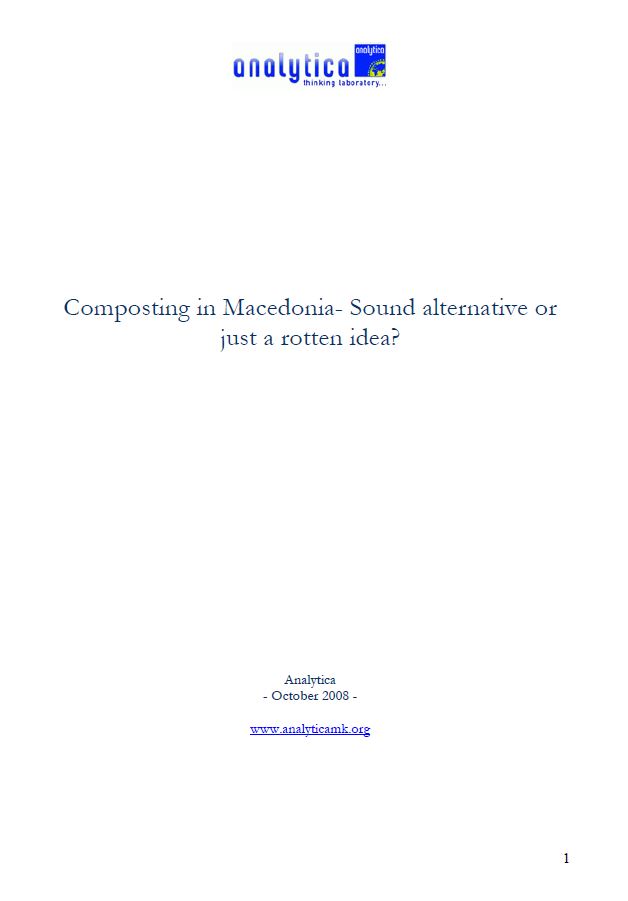
In the European Union (EU) with 497 million inhabitants, biowaste accounts for 30-45% of the municipal solid waste (MSW). While in Macedonia, a country with only two million inhabitants has biowaste percentages near the percentage of the EU - 26.2%. In Macedonia biowaste includes waste materials with organic (animal and vegetal) origin, like household waste, then restaurants, canteens food waste and green markets waste, as well as in the rural municipalities, agricultural wastes, wastes from livestock activities, gardening wastes and forest residues. Due to the high water content, high density (except for green waste which has low density) and the high putrescibility of this waste stream, it is crucial to be involved in integrated, sustainable waste management. The MSW and its biowaste stream produced in Macedonia is landfilled (at official landfills) and dumped at thousands of illegal dumpsites. Furthermore, there is no separate collection of biowastes, only separate collection of paper as biowaste is realized by the communal enterprises. Additionally, the rural communities with main agricultural activities do not have official waste collection systems. The treatment of the agriculture wastes depend solely on the treatment practices of the farms. Because the agriculture sector in Macedonia lacks the Good Farming Practice (GFP), non compliance to basic technical and environmental requirements is often the case with the macedonian farms. This leads to pollution of soils, water courses and emissions of greenhouse gases (GHG) on the long run.
More...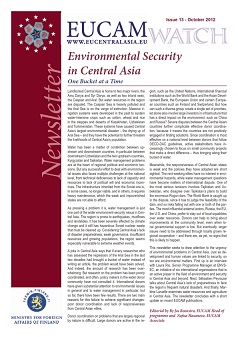
Landlocked Central Asia is home to two major rivers, the Amu Darya and Syr Darya, as well as two inland seas, the Caspian and Aral. But water resources in the region are disputed. The Caspian Sea is heavily polluted and the Aral Sea is on the verge of extinction. Massive irrigation systems were developed in the past to sustain water-intensive crops such as cotton, wheat and rice in the steppes and deserts of Kazakhstan, Uzbekistan and Turkmenistan. These systems have caused Central Asia’s largest environmental disaster – the drying up of Aral Sea – and they have the potential to further threaten the livelihoods of Central Asia’s population.
More...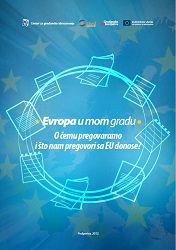
EU model će biti podsticajan za crnogorsku poljoprivredu, jer postoje mehanizmi za podršku malim gazdinstvima, kakvih je puno u EU27. Crna Gora će, pored povoljnosti koje pruža tržišta od 500 miliona potrošača, imati i izdašnu finansijsku podršku za direktna plaćanja i ruralni razvoj, ukoliko ispuni predviđene obaveze i uspješno obavi pregovore. EU insistira na «strogim» pravilima s ciljem da se obezbijedi uređeno i predvidivo tržišno ponašanje i bezbjedan proizvod za krajnjeg potrošača, ali istovremeno višestruko podržava konkurentnost proizvođača i uvođenje EU standarda. EU ne ograničava razvoj i povećavanje proizvodnje, kako se u javnosti može čuti, ograničenje koje sada važi za proizvodnju mlijeka ukida se u aprilu 2016.godine i jedino još ostaje ograničenje za podizanje novih vinograda (planting rights).
More...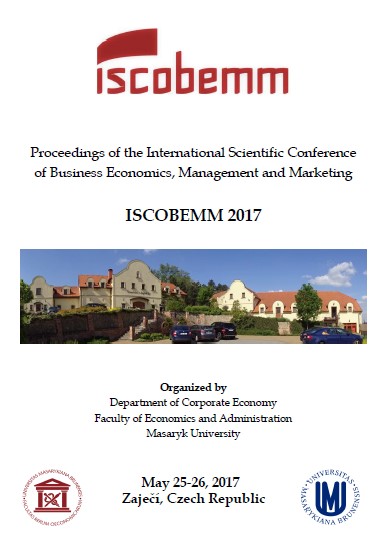
Since 1989, not only has the economy of the agricultural sector been fundamentally transformed, but also those of other sectors. The consequences of changes in agricultural enterprises have primarily become evident in the employment rate and their performance. This article aims to evaluate the financial performance of agricultural enterprises in selected regions in relation to the general unemployment rate in these regions. The results obtained are based on the collection and processing of secondary data from the database of economic and financial records called Amadeus (na = 117, nb = 81) and from publicly available financial statements of enterprises. The evaluated results have shown that the general unemployment rate does not affect the financial results and personnel costs, and thus neither the performance of agricultural enterprises.
More...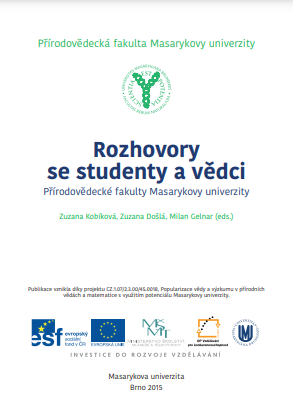
Interview with Marie Prachařová.
More...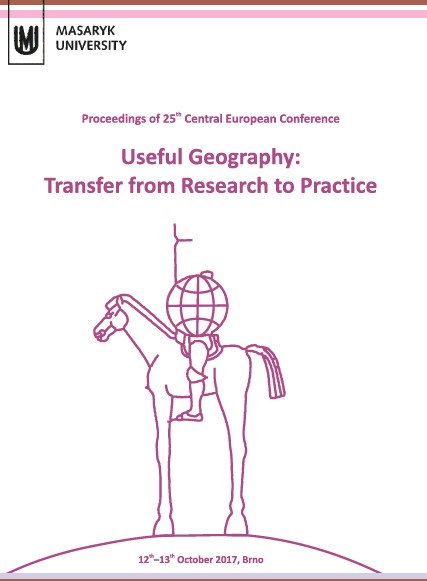
The paper focuses on identification of rare landscape structures in model areas of South Moravia with traces of traditional and regionally conditioned ways of farming, assessment of their significance in the protection of agricultural land resources, environmental protection, and provision of eco-system services. The potential of future use of these areas, the possible sustenance of traditional ways of farming, or the possible renewal of extinct landscape structures are other key topics of the paper. The aim of the paper is to find the answers to the following research questions: What are the surviving rare historical landscape structures in the model areas with respect to the categories of land use, how are they being currently managed? How are the surviving historical landscape structures in the model areas protected in the view of the environmental and landscape protection? What are the options of renewal of historical landscape structures?
More...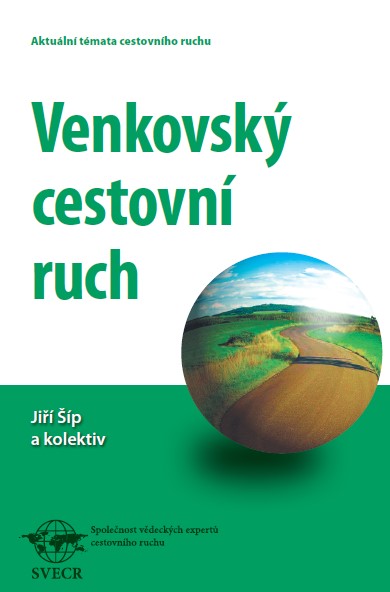
Venkovský (rurální) cestovní ruch, který lze považovat za jednu z doplňkových alternativ udržitelné existence venkovského prostoru, je produktem dlouhodobých kontinuálních restrukturalizačních procesů na venkově evokovaných snižováním nároků na plochy obdělávané zemědělské půdy i nároků na námezdní pracovní sílu v zemědělství. Potřeba pravidelné údržby kulturní krajiny vyvolává poptávku po nových alternativních programech včetně cestovního ruchu. Stále více rostoucí fenomén venkova a restrukturalizace jeho funkcí přináší pozornost odborné veřejnosti, která se začala podrobněji zabývat studiem restrukturalizací vzájemných vazeb a perspektivou trvale udržitelného rozvoje mezi venkovem a městem. Rostoucí počet výzkumných studií a regionálních analýz evokuje otázku, jak vymezit pomyslnou hranici venkova, jak oddělit venkovský prostor od městského urbanizovaného a suburbanizovaného území, jak jsou na sobě závislé, jak se navzájem propojují a jak roste fenomén cestovního ruchu na venkově. Tyto aktuální studie procesů inovací, marketingových technologií včetně digitalizace kontinuálně obohacují související mezinárodní i domácí terminologii cestovního ruchu, kterou je třeba optimalizovat. Velice často se dostáváme do prostředí formulačního chaosu, který evokuje nekonečnou diskuzi o používání českých a cizích terminologických označení v Česku.
More...
Venkov se v současné době potýká se změnami, jako jsou pokles zemědělské výroby, nedostatek služeb, stárnutí populace nebo snižující se počet obyvatel. Rozvoj venkova je často dáván do souvislosti s cestovním ruchem, který je považován za významný nástroj obnovy a rozvoje postižených venkovských oblastí. Česká republika má velký potenciál pro rozvoj venkovského cestovního ruchu, avšak v porovnání se zahraničím není zdaleka na tak vyspělé úrovni. I proto je, jak uvádí Šimková (2013a), na rozvoj venkova v současnosti vynakládáno poměrně velké množství prostředků, které napomáhají zhodnotit jeho potenciál pro rozvoj domácího cestovního ruchu. Kapitola je věnována problematice využití kulturního dědictví ve venkovském cestovním ruchu, a to na příkladu turistického regionu Střední Morava a Jeseníky.
More...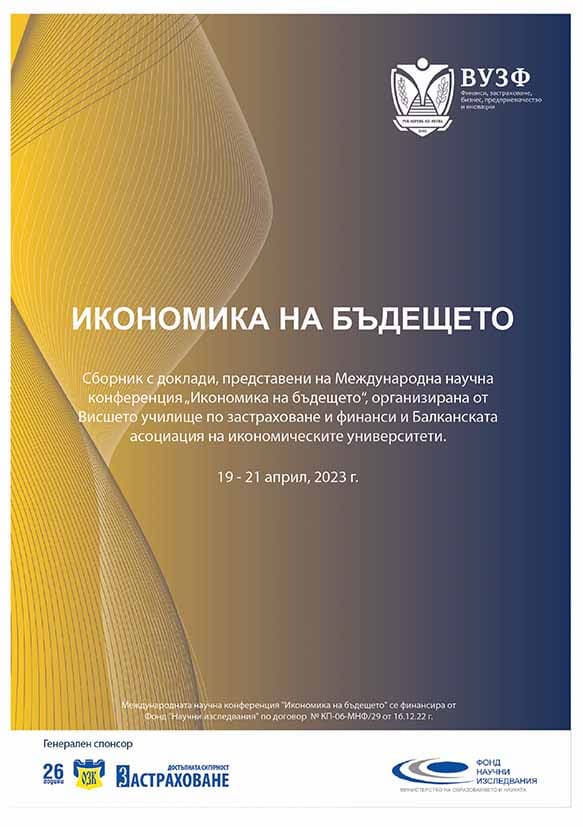
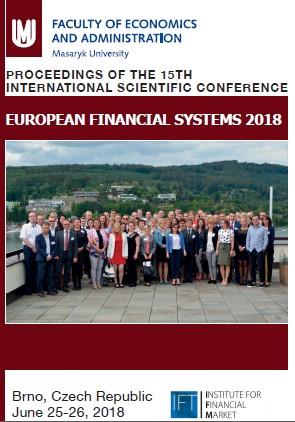
Financial accounting is the most important tool for determining the financial position and performance of agricultural business. However, this is increasingly subject to the harmonization process. The first effort to harmonize financial accounting in Europe took place in the 1950s after the signing of the Treaty of Rome, and has been ongoing since then. Harmonization is currently being promoted through EU directives that are changing national legislation. The aim of this contribution is to quantify the impact of important changes (in financial accounting between 2004 and 2017) on the financial position and performance of agricultural business. The impact of the changes was quantified using the average values of a sample of 100 selected entities across the Czech Republic (i.e., joint stock companies, limited liability companies and cooperatives with primary agricultural activity). Average values are presented in the tables so that the effect of the change on the balance sheet and profit can be demonstrated. The data were obtained from the collection of commercial register documents. Important changes (specific for agriculture) have been found: valuation of assets, reporting of preferential limits, depreciation of permanent crops on foreign land and valuation of inventories of own production, reporting a change in their amount.
More...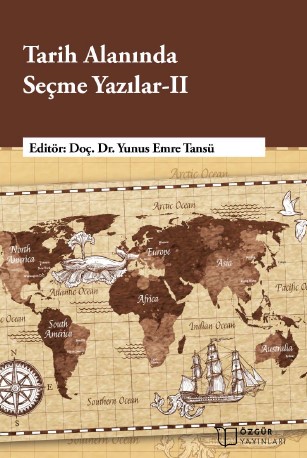
Cumhuriyet döneminde Balkanlardan Anadolu’ya birçok göç yaşanmıştır. Bu göçlerin en yoğun yaşandığı yıllar mübadele dönemi olmuştur. Bu mübadele döneminde Anadolu’dan Yunanistan’a 1.200.000 kişi giderken Balkanlardan Anadolu’ya da 400.000 kişi gelmiştir. Bu gelenlerin 4.968 kişisi Muğla İline ve bunun da 459 kişisi Menteşe İlçesi’ne iskân edilmiştir. Bu mübadillerin iskânı sırasında sorun yaşanmaması için dönemin hükümet önce İmar ve İskân Vekâleti kurmuş ve vekâlet de her il ve ilçede İmar ve İskân Komisyonları oluşturmuştur. Muğla’da da Vali’nin başkanlığında bir komisyon kurulmuştur. Bu komisyonun; yerleşim yerlerini tespit etme, sağlık sorunlarını çözme, taşınma işini düzenleme ve ev, arsa, zeytinlik gibi malların dağıtımını adaletli bir şekilde yapma gibi görevleri vardı. Mübadele olayının bazı avantajları ve dezavantajları olmuştur. Muğla-Menteşe İlçesi’ne Rodos Adası Kavala, Drama, Tikveş gibi yerlerde tarımla uğraşan kişiler gelmiş ve bu da bölge tarımının gelişmesine katkı sağlamıştır. Ancak, gidenler Menteşe İlçesi’nde zanaat ve ticaret ile uğraşan kişiler olduğu için bu da bölgede ticaret ve zanaat faaliyetlerini olumsuz etkilenmesine neden olmuştur.
More...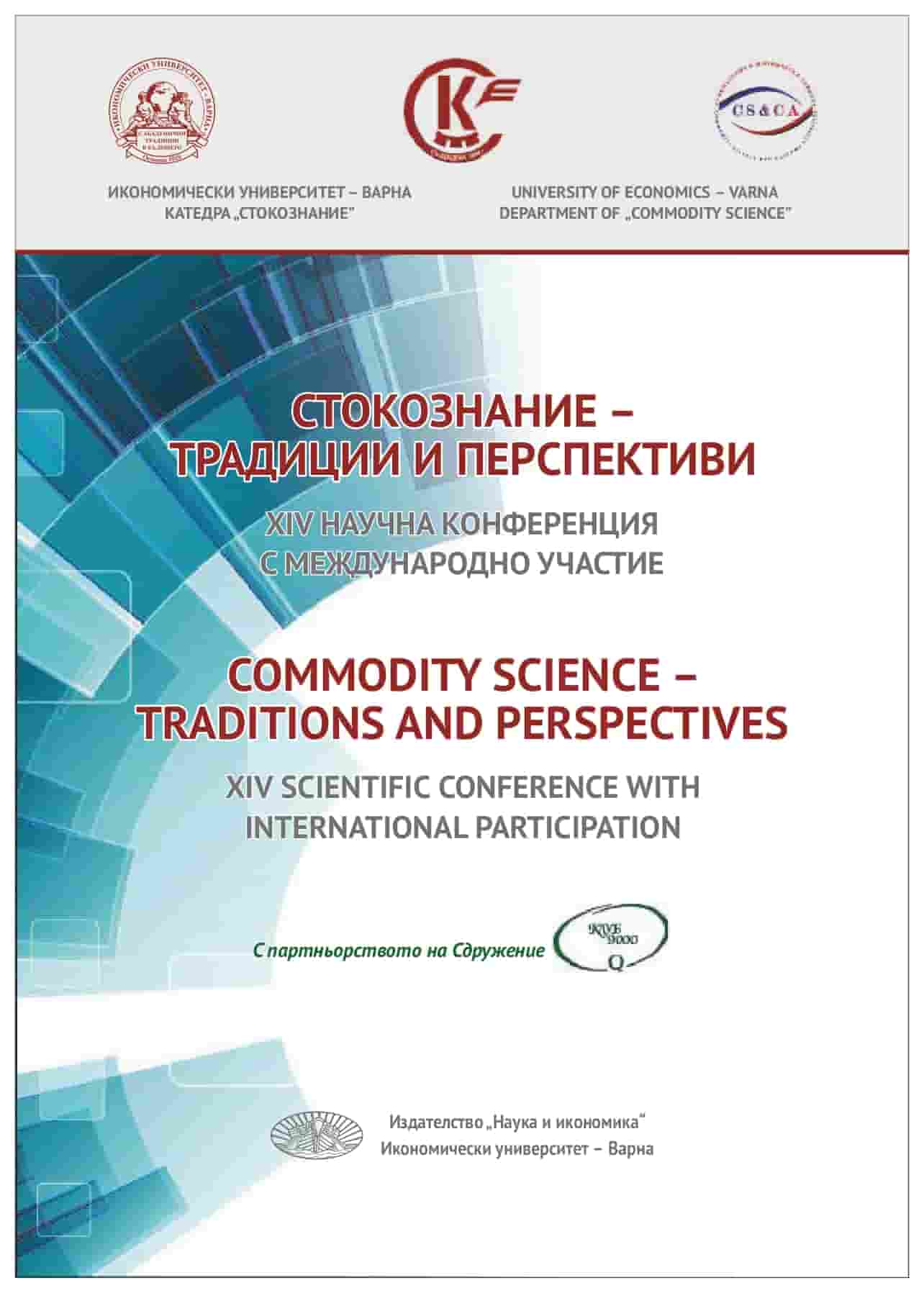
The report investigates the effect and health aspects of addition of an industrial waste from tomato processing on the sensory characteristics and some chemical properties of innovative crackers. It was established that the products with the addition of 5% industrial waste from tomato processing have the best quality characteristics, pleasant and specific and well accepted by consumers. The products are a good source of dietary fiber and proteins, making them suitable for the wellness lifestyle of the modern generation.
More...
The healthy behavior pattern of modern man undoubtedly includes increased interest, demand and consumption of organic food. Personal and family health are among the main determinants of consumer choice of organic food, as cited in many scientific studies. The aim is to study the factors influencing consumer trust in purchasing organic food. In Bulgaria, Dobrich District from November 2020 until April 2021 an anonymous survey was conducted among 150 consumers about their attitude towards buying organic food. The results were processed using Jamovi, version 2.2.5. The conclusions were established at confidence level α= 0.05. Consumers' knowledge of organic food labeling is associated with their choice based on the special labeling logo (p< 0.001). There is a statistically significant difference between men and women in the recognition of organic food through information on the packaging that the food is certified as organic (p=0.042) and when indicating the label ‘European leaf’ for the designation of organic food produced in the EU (p=0.040). The belief that organic food is of high quality and healthy is positively related to consumers' awareness of the logo they use in the European Union (p=0.047). Organic food consumers are informed and educated, looking for guarantees of origin. Researches supported by data indicating higher trust in organic food can be used to develop governments policies to promote them and increase consumer attitudes towards it.
More...
The purpose of the paper was to present some current aspects related to the utilization of pomegranate waste. The search for ways and the development of various strategies for the effective management of agricultural waste, including pomegranate waste, is among the promising environmental directions. The research of scientific literature carried out in this paper gives reason to conclude that the utilization of pomegranate waste is an actual and promising modern scientific direction in which intensive research is carried out, such as the development of adsorbents for the removal of pollutants from wastewater, or the use of various methods for the extraction of bioactive compounds from these wastes.
More...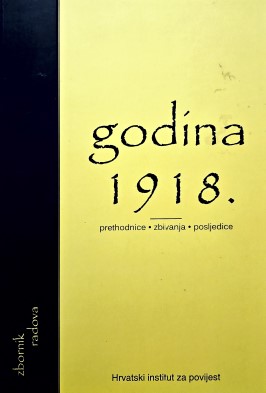
The paper aims to present dynamics of political and every-day activities on the island of Brač during the First World War. It presents the war-related problems of the populace - shortage of manpower and dependence on vineyards as the main economy of the island. The author pays special attention to the agriculture of the island and argues that it was focal point for the local population who suffered food shortages. According to Dalmatian journals and the Bol municipal archives, population was loyal to the regime until 1917 and then started to profess their allegiance to future Yugoslav state. The period after the war did not fulfill their hopes, because the structural problems such as poverty, migration and lack of modernization, continued.
More...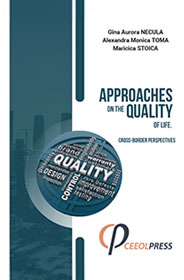
This chapter discusses the intricate relationships within biodiversity and the severe impacts of current climate changes. The diversity of living beings and ecosystems is crucial for life on Earth, contributing to water purification, plant pollination, air cleansing, climate regulation, and soil fertility. The chapter highlights the significant threats posed by climate change, such as droughts, floods, landslides, and extreme weather events, which affect various sectors including water, food security, health, and forestry. It addresses the need for innovative strategies to conserve genetic biodiversity and ecosystems in response to these challenges. The chapter also covers the historical responses of species and ecosystems to environmental changes, the role of natural regulatory mechanisms in climate mitigation, and the implementation of nature-based solutions to address climate challenges and protect biodiversity.
More...
This chapter, authored by Dimitrie Stoica, Claudia Veronica Ungureanu, and Angela Stela Ivan, delves into the pressing issue of food waste management. The authors discuss the necessity of balancing global economic growth with the preservation of natural resources, emphasizing the expected increase in global food demand by 2050. The chapter differentiates between food loss (FL) and food waste (FW), highlighting the stages in the food supply chain where each occurs. It examines the causes and impacts of food waste at household and HoReCa sector levels, stressing the environmental, economic, and social costs associated with FW. The chapter also explores the role of digital technologies such as IoT, AI, and big data in reducing food waste, enhancing sustainability, and promoting efficient resource use. It concludes by discussing innovative solutions like smart packaging, stock inventory optimization, and food sharing apps that help manage and reduce food waste.
More...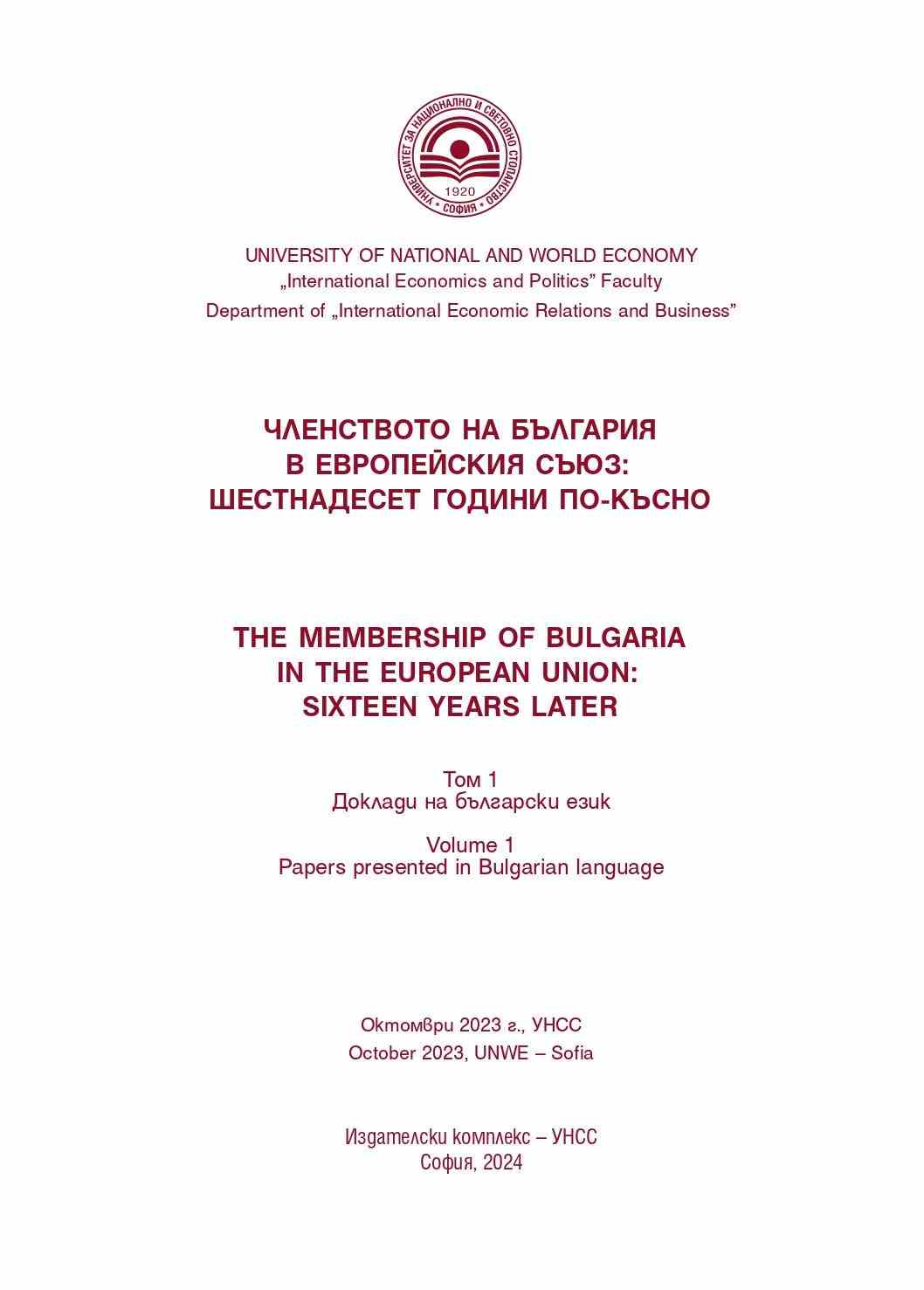
The popularity of organic products worldwide is increasing due to the perception that they are cleaner and better for both people and the environment than conventionally grown ones. In the last 10 years the market of organic products in the European Union and in particular in Bulgaria is growing exponentially and ahead of the market for conventional products. More people are starting to include products of organic origin in their consumer basket. This is due both to the desire for healthier, cleaner and more environmentally friendly food, and to the increasing supply of organic products on the market. The number and size of farms that grow organic products, as well as traders and shops that offer them, are increasing. The rapid increase in sales of organic products shows the rise of consumer demand and the success of measures to maintain demand. The growth of the demand and purchase of organic food was particularly strong during the pandemic COVID-19, as a result of which consumers paid more attention to health problems and their relationship with food quality, as well as the higher food consumption at home. For the programming period 2023-2027, part of the CAP strategic plans include various programs to support organic farming in the EU.
More...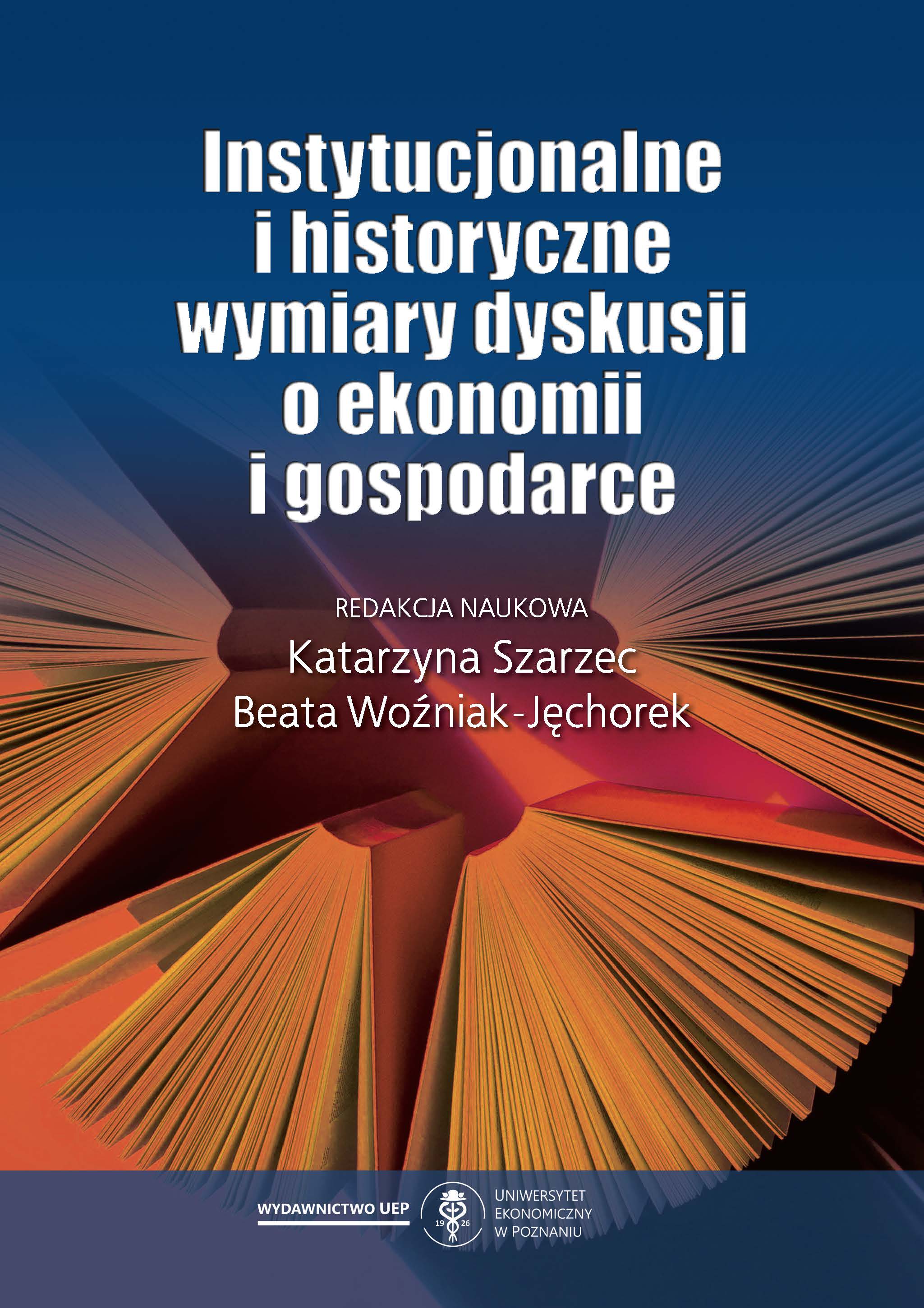
The processes of commodification, privatisation, and securitisation of natural environmental components are strongly evident in the socio-economic sphere. The aim of the chapter is to present and assess the place of transnational corporations in the financialization of the natural environment, with a focus on two areas – deforestation and land grabbing. Currently, a significant portion of deforestation is attributable to consumers in wealthy countries, with approximately a quarter of global forest loss resulting from deforestation driven by resource extraction and the expansion of large industrial corporations. Land grabbing is a consequence of changes in land management as a factor of production and the increasing importance of land as an investment and speculative asset. The interest of global entities in environmental goods is primarily associated with the potential benefits that presence in this market can bring, compounded by issues with the real valuation of environmental resources, weak effects of available regulatory instruments, and the weaknesses of global organizations. The analysis of the research problem was conducted based on literature studies, using descriptive statistical methods.
More...